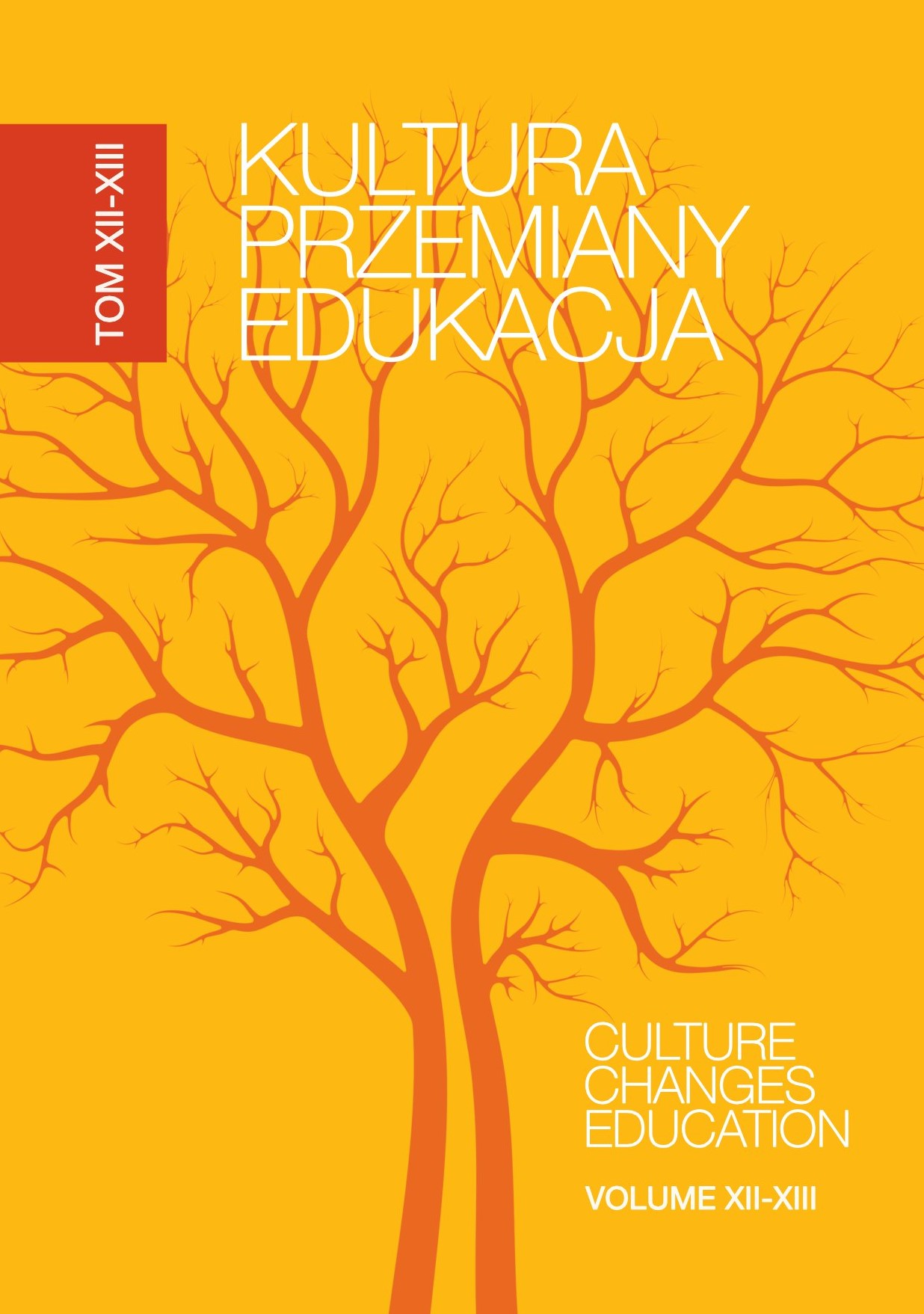A study on the pedagogical axiology of Abraham H. Maslow
DOI:
https://doi.org/10.15584/kpe.2023.12.6Keywords:
Maslow, humanistic pedagogy, needs, motivation and values theory, transcendence, values-BAbstract
The author seeks the presence and understanding of pedagogical values in the axiological theory of Abraham H. Maslow. First, he presents previous attempts to read the scholar’s pedagogical axiology in Poland, questioning some conclusions. Then he makes a preliminary recognition of the scholar’s theory of values and develops the issue, inquiring into the essence of values as understood by Maslow. The reconstruction made reveals the main source of Maslow’s axiology in the form of peak or transcendent human experiences. This makes it possible to present Maslow’s unified eight-level theory of needs, motivations and values, in which transcendent values are the source of humanity. The final part of the article includes not only the presentation and understanding of a dozen universal values according to Maslow, but also examples of their application in pedagogical practice. The work also points out the correlation of Maslow’s pedagogical axiology with the pedagogical views of Socrates and the pedagogical work of Eduard Spranger.
Downloads
References
Cichoń W., Wartości, człowiek, wychowanie. Zarys problematyki aksjologiczno-wychowawczej, Kraków 1996.
Cox R., Posłowie. Bogaty plon Abrahama Maslowa [w:] M. Maslow, Motywacja i osobowość, przeł. J. Radzicki, wyd. 2, Warszawa 2009.
Gable F.G., The Third Force. The Psychology of Abraham Maslow, New York 1971.
Koltko-Rivera M.E., Rediscovering the Later Version of Maslow’s Hierarchy of Needs: Self-Transcendence and Opportunities for Theory, Research, and Unification, “Review of General Psychology” 2006, t. 10, nr 4.
Maciuszek J., Człowiek i problemy wychowania w koncepcji Abrahama Maslowa, „Rocznik Naukowo-Dydaktyczny WSP w Krakowie” 1992, nr 141.
Maslow A.H., Humanistic education vs. professional education: Further Comments, “New Directions in Teaching” 1970, nr 2.
Maslow A., Motywacja i osobowość, przeł. P. Sawicka, Warszawa 1990.
Maslow A., Motywacja i osobowość, przeł. J. Radzicki, wyd. 2, Warszawa 2009.
Maslow A., Peak Experiences in Education and Art, “Theory Into Practice” 1971, t. 10, nr 3.
Maslow A., Religions, Values, and Peak-Experiences, wyd. 3, New York 1971.
Maslow A.H., The Farther Reaches of Human Nature, New York 1971.
Maslow A., W stronę psychologii istnienia, przeł. I. Wyrzykowska, Warszawa 1986.
McLeod S.A., Maslow’s Hierarchy of Needs (2018, May 21), https://www.simplypsychology.org/maslow.html (dostęp: 30.09.2022).
Nalaskowski S., O ideale wychowania i celach kształcenia. Studium z pedagogiki porównawczej, Toruń 1994.
Nowak M., Metoda hermeneutyczna w pedagogice, „Roczniki Nauk Społecznych” 1993, t. 21, z. 2.
Oliver M., Frank G. Goble; Developer of Character Education, “Los Angeles Times” 2000, 25 Feb., https://www.latimes.com/archives/la-xpm-2000-feb-25-mn-2487-story.html (dostęp: 2.08.2023).
Piasecka M., Edukacyjne przestrzenie doświadczania mądrości [w:] Epistemologia a praktyka edukacyjna. Podstawy edukacji, red. A. Gofron, M. Piasecka, Częstochowa 2008.
Rogers C.R., Sposób bycia, Poznań 2002.
Spranger E., Pädagogische Perspektiven. Beiträge zu Erziehungsfragen der Gegenwart, wyd. 8, Heidelberg 1964.
Śliwerski B., Pedagogika ogólna. Podstawowe prawidłowości, Kraków 2012.
Tatarkiewicz W., Historia filozofii, t. 1, wyd. 5, Warszawa 1959.
Wołoszyn S., Nauki o wychowaniu w Polsce w XX wieku. Próba syntetycznego zarysu na tle powszechnym, wyd. 2 poszerzone, Kielce 1998.
Zieliński P., Aspekty pedagogiczne Sutry Lotosu, Częstochowa 2021.
Zieliński P., Koncepcja edukacji Abrahama Maslowa, „Studia z Teorii Wychowania” 2022, nr 4.
Downloads
Published
How to Cite
Issue
Section
License
Copyright (c) 2023 KULTURA – PRZEMIANY – EDUKACJA

This work is licensed under a Creative Commons Attribution-NoDerivatives 4.0 International License.


